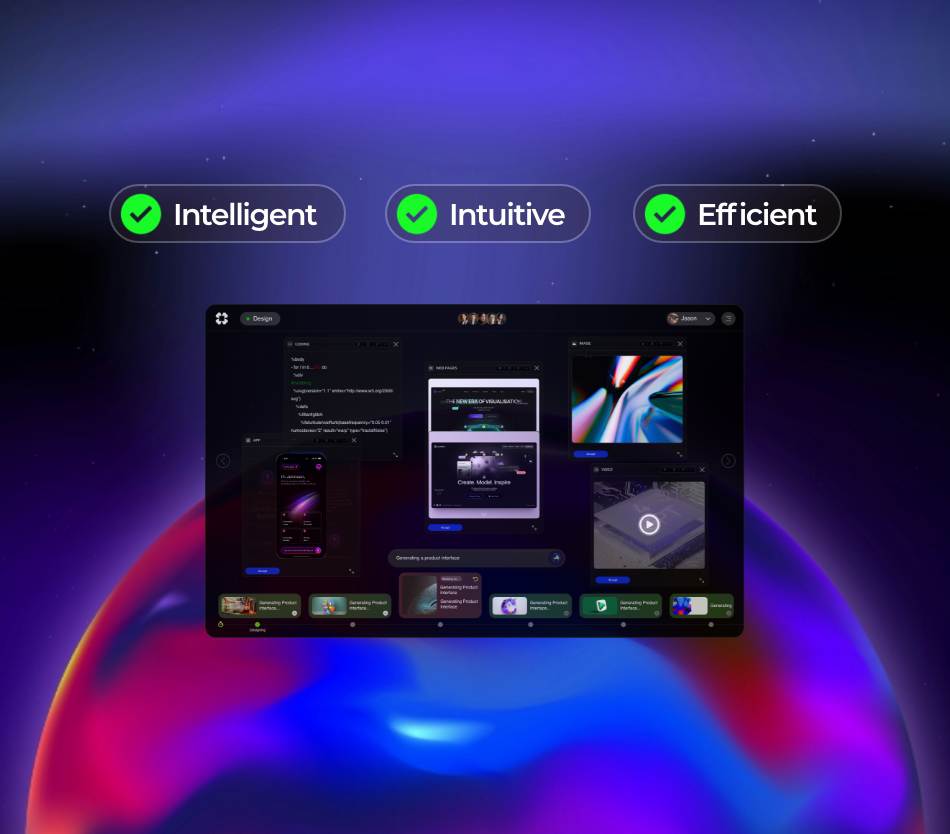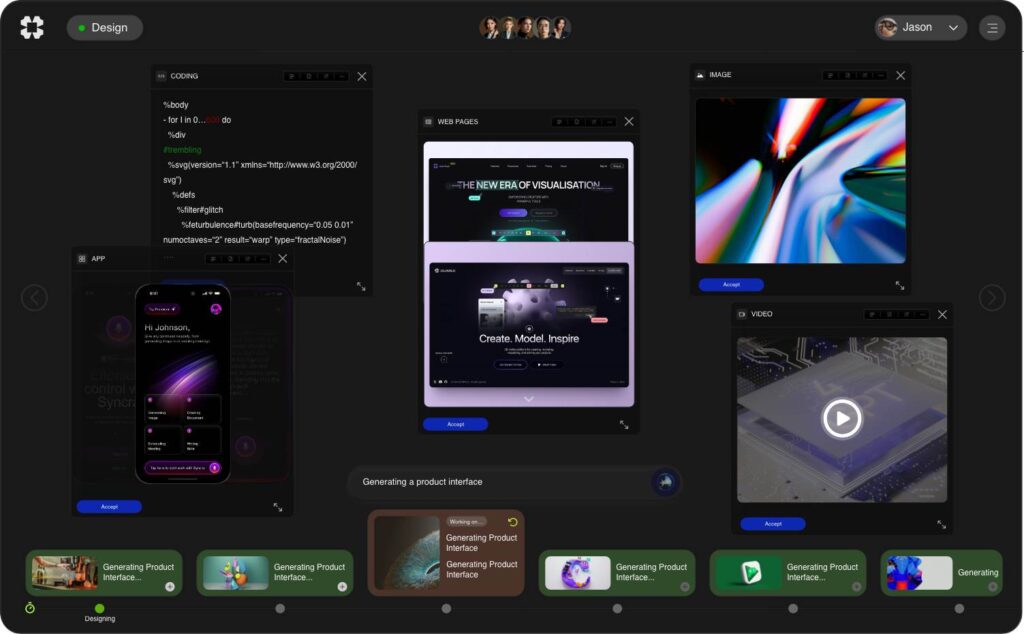Intelligent automation (IA) is transforming the way businesses operate, offering unprecedented efficiencies and improved decision-making capabilities. As many organizations strive to optimize operations, AI workflow optimization emerges as a key strategy to streamline processes and enhance productivity. Among the platforms leading this innovation is IBM Watson, a powerful AI system renowned for its analytical capabilities and adaptability. This article delves into the latest trends in intelligent automation, explores industry applications of AI workflow optimization, and provides insights into how businesses can leverage IBM Watson to revolutionize their operations.
.Intelligent Automation at a Glance
Intelligent automation combines traditional automation techniques with advanced AI, machine learning, and natural language processing to create smart systems capable of performing complex tasks. While traditional automation primarily relies on pre-defined rules and scripts, intelligent automation learns from data, continually improving its performance over time. This hybrid approach enables organizations to not only streamline repetitive tasks but also make data-driven decisions in real time.
The rise of digital transformation initiatives has amplified interest in intelligent automation. According to a report from McKinsey, the pandemic accelerated the adoption of automation technologies by several years, with businesses leveraging IA to reimagine processes and deliver deeper insights. This trend has created a burgeoning demand for AI-driven solutions that enhance operational efficiency and support strategic objectives.
.The Importance of AI Workflow Optimization
AI workflow optimization is an essential aspect of intelligent automation, focusing on enhancing the efficiency of processes through data-driven insights. AI systems can analyze workflows, identify bottlenecks, and recommend process improvements, leading to significant time and cost savings. By automating tedious tasks and optimizing workflows, organizations are better positioned to focus on strategic initiatives, deliver improved customer experiences, and drive innovation.
For example, businesses in the healthcare sector have harnessed AI workflow optimization to reduce administrative burdens and enhance patient care. AI can streamline appointment scheduling, manage patient records, and provide automated reminders, allowing healthcare providers to allocate more time to direct patient interaction. This not only enhances the operational efficiency of healthcare systems but also improves patient satisfaction—a compelling reason for the continued investment in intelligent automation solutions.
.IBM Watson: The Power Behind Intelligent Automation
IBM Watson stands at the forefront of intelligent automation, offering businesses a suite of AI tools that can integrate seamlessly into existing workflows. With its strong capabilities in natural language processing, machine learning, and data analytics, Watson enables organizations to optimize processes across various industries.
Watson’s ability to analyze vast amounts of unstructured data makes it particularly suitable for use cases in finance, healthcare, customer service, and marketing. For instance, in finance, Watson can assist in automating compliance processes, mitigating risks, and providing real-time insights into market trends. By leveraging intelligent automation powered by Watson, financial institutions can make informed decisions and address challenges more effectively.
In customer service, Watson’s AI capabilities enhance the experience by providing chatbots and virtual assistants that can handle inquiries, troubleshoot problems, and offer personalized support. This not only reduces the workload for human agents but also improves response times and customer satisfaction rates.
.Industry Applications of Intelligent Automation
The applications of intelligent automation span numerous industries, presenting organizations with tailored solutions that address their unique challenges. Some prominent examples include:
1. **Manufacturing**: In manufacturing, intelligent automation optimizes supply chain management and production processes. Companies can implement predictive maintenance, reducing downtime by identifying component failures before they occur. This shifts the paradigm from reactive to proactive maintenance, significantly improving operational efficiency.
2. **Finance and Banking**: Intelligent automation streamlines processes such as loan approval, compliance, and fraud detection. For instance, banks can harness Watson’s capabilities to analyze transaction data and detect anomalies that may indicate fraud. This not only enhances security but also accelerates the decision-making process surrounding loans and credit approvals.
3. **Healthcare**: As mentioned earlier, healthcare organizations utilize intelligent automation to streamline administrative tasks and improve patient outcomes. From managing electronic health records to optimizing clinical workflows, AI-driven solutions help healthcare providers focus on delivering high-quality care.
4. **Retail**: In retail, intelligent automation enables dynamic pricing strategies, inventory management, and personalized customer experiences. By analyzing purchasing patterns, AI systems can recommend products to customers, driving sales and enhancing the shopping experience.
5. **Insurance**: Insurance companies are increasingly leveraging intelligent automation to expedite claims processing and enhance risk assessment. By using AI to analyze claims data, insurers can make faster decisions, ultimately improving customer satisfaction while reducing costs.
.Industry Use Case: AI-Powered Claims Processing in Insurance
To illustrate intelligent automation in action, let’s examine a use case within the insurance industry, specifically focusing on claims processing. Traditionally, claims processing is a time-consuming method requiring extensive human intervention for documentation review, fraud detection, and risk assessment.
By integrating IBM Watson into their claims management systems, an insurance company can automate many facets of the claims process. Watson’s natural language processing enables it to extract essential information from unstructured data, such as emails or scanned documents, reducing the need for manual data entry.
Close to real-time insights can assist claims adjusters in assessing the validity and fairness of claims. With the ability to analyze historical claims data, Watson can flag suspicious claims for further review, mitigating fraud risks significantly.
The results of implementing such intelligent automation solutions are compelling. The insurance company can achieve faster claim settlements, lower operational costs, and improved customer satisfaction due to quicker response times.
.Future Trends and Solutions in Intelligent Automation
As intelligent automation continues to evolve, certain trends are likely to shape its future:
1. **Robotic Process Automation (RPA)**: The integration of RPA with AI is gaining traction, allowing organizations to automate repetitive, rules-based tasks while also leveraging AI for data-driven decision-making.
2. **Ease of Use**: User-friendly interfaces and low-code platforms will make deploying intelligent automation solutions more accessible to non-technical users, increasing adoption across various business functions.
3. **Collaboration Between Humans and AI**: Organizations will increasingly focus on hybrid models that combine human expertise with AI capabilities, leading to augmented work environments where human and AI collaboration drives innovation.
4. **Ethical AI Practices**: As organizations implement AI solutions, ethical considerations regarding data privacy, bias mitigation, and transparency will take precedence. Establishing robust governance frameworks for AI will become critical in maintaining public trust.
5. **AI-Driven Decision Making**: Real-time analysis and predictive insights from intelligent automation will enable businesses to make more informed decisions, enhancing organizational agility in response to market changes.
.Conclusion
In today’s rapidly evolving business landscape, intelligent automation represents a critical opportunity for organizations to enhance efficiency, reduce costs, and ultimately drive growth. By harnessing AI workflow optimization capabilities through platforms like IBM Watson, businesses can gain a competitive edge, also preparing to meet future challenges head-on.
As we look ahead, embracing intelligent automation not only streamlines operations but also cultivates a culture of innovation, positioning organizations at the forefront of their industries. With continuous advancements in technology and an unwavering focus on optimizing workflows, the future of work is indeed intelligent—and the journey has only just begun.
**Sources**:
– McKinsey & Company. “The State of AI in 2023.”
– IBM. “IBM Watson: A Comprehensive Overview.”
– Gartner. “Top Trends in Intelligent Automation for 2024.”
– Deloitte Insights. “How Intelligent Automation is Reshaping the Insurance Industry.”



























